- Home
- George R. R. Martin
Suicide Kings Page 11
Suicide Kings Read online
Page 11
A trio of kids ran past them, laughing and shouting to each other. They were kicking a ball down the street. It appeared to be a crushed-up plastic water bottle wrapped with tape. Wally wondered what they were saying, if their game had any rules, and if Lucien played something similar.
“Uh, Jerusha?” said Wally. “Where’s here?”
She said, “I think this is a town called Kawi. We’re just a few miles north of the embassy. There’s a bush pilot here who can fly us to Lake Tanganyika.” Her voice dropped to a whisper. “I told him”—she nodded her head in the direction of the aide, who was knocking on a door next to the hangar across the street—“that we’re on Committee business, meeting somebody at the lake. If anybody asks, I sort of implied that it’s all very hush-hush. So just play along and we should be fine.”
“Okeydokey. That sounds real good,” he said. “Way to go, Jerusha!” He gave her a thumbs-up and a smile.
She didn’t respond. Instead, she stared at his shoulder. Her eyebrows rose. “Wally? Did you know you’re . . . rusting?”
Wally craned his neck to peer over his shoulder. Little splotches of orange dusted his skin. Sure, it was wet here, but he’d hoped this wouldn’t have started quite so fast. “A www, heck.”
“Does that hurt?”
Huh. Nobody had ever asked him that before.
“Nah,” said Wally. “Not when it’s just on the surface like that.” He fumbled through his pockets until he found some steel wool. A few quick rubs turned the splotches into a red dust. The slightest of breezes carried it away.
Jerusha still looked upset. She was frowning. “Does that happen a lot?”
“Sometimes. When it’s humid outside.”
“Humid? We’re heading into the jungle. During the rainy season.”
“Don’t worry. I got lots of S.O.S pads with me.”
Jerusha frowned, looking doubtful. She started to say something, but stopped when the sound of raised voices echoed across the street.
They turned. The aide was talking to a fellow with grey skin, dark little eyes deep in his round face, and a snout topped with a thick horn. He was a big guy, too, built like a fire hydrant. Wally remembered the Living Gods, jokers that had taken the forms of the gods of ancient Egypt. Kinda like the way Wally had grown up around open-pit iron mines and ended up with iron skin. This fella seemed to be something similar, only here in Africa his jokerism had taken the form of a rhinoceros.
The aide waved Jerusha and Wally over. They joined him. To the rhino guy, he said, “Here they are. Jerusha Carter and Wally Gunderson.” To Wally and Jerusha, he said, “This is Denys Finch. He’s the pilot I mentioned.”
“Best pilot in the bush,” said Finch.
Wally held out his hand. “Pleased to meetcha, guy.”
Finch looked him up and down, his stubby little ears twitching like crazy. He did the same to Jerusha, then looked at the aide again. “Oh, no,” he said. “Not this time. I’ve had it with your bloody tourists.”
The aide looked embarrassed. “Not tourists, Mr. Finch. I told you, they’re here on business for the Committee. The United Nations.”
“Yeah, you and your so-called dignitaries.” Finch spat in the dirt. “Comin’ all the way to Tanzania, askin’ me to fly them around. ‘Ooh, Mr. Finch, show us Kilimanjaro. Ooh, Mr. Finch, show us the lakes, show us elephants and hippos and the real bloody Africa so we can take a few holiday snaps before going home to brag about our safari adventure.’ Then it’s thank-you-Mister-Finch-good-job and before you know it they’re headed back to their proper Western hotels for proper Western food and proper Western air-conditioning.” He spat again. “Wankers.”
The embassy aide tugged at his collar, blushing. Wally understood the gist of Finch’s tirade, if not every word.
“Hey, fella, we’re not tourists,” he said. “Not like that. Promise. We might be here awhile.”
“Is that so? Then where’s your kit?”
Wally frowned. “Kit?”
Finch rolled his eyes. It looked like he was mad enough to hit somebody with that sharp horn of his. Wally sidled in front of Jerusha.
“Yes, kit,” said Finch. “Provisions. Gear. Tents and the rest.”
“Actually,” Wally said, “we were kinda hoping you’d help us with that.”
Jackson Square
New Orleans, Louisiana
The woman was disgusting, a mass of flesh draped in a light, silky material. Noel wondered if they’d used a circus tent. They had to have something covering her for modesty’s sake, but it had to be light given the sultry heat.
Michelle and Niobe were deep in conversation. Ink hovered at the edges of the conversation, and the terrifying Hoodoo Mama stalked the edges like a protective rottweiler.
“We’ve been married almost a year, and . . . I’m pregnant,” Niobe trilled. Then all of the females let out that peculiar shrill squeal reserved for news of an impending whelping. Even Noel’s large, no-nonsense, horse-faced English mother had produced the sound when they’d relayed the news to her.
Michelle rolled her head toward him. “I didn’t know you had it in you.”
“I might surprise you.”
“I doubt it.”
“Oh, Michelle, be nice. Though we did have to try real hard,” Niobe added, and Noel closed his eyes as peals of female laughter rolled past his ears. He wondered if he would have understood these tribal responses if his mother had chosen to raise him as a girl rather than a boy.
But if she had he wouldn’t have Niobe, which indicated his brain wiring was male even if his parts were confused.
Michelle smiled at Niobe. “Would you get me a cup of lemonade? Ink can help you.”
Both Niobe and Ink looked startled. Noel gave Michelle a cynical knowing smile. As the two women walked away he moved in close to her. He noticed that she lay in a crater formed by her massive weight in the moist soil of New Orleans.
“That was a little in-artful,” he said. “So, what is it you want to say to me?”
“Are you out of the spy business?”
“I left the Silver Helix, yes.”
“That didn’t answer the question.”
“That’s all the answer you’re getting.”
“So you are up to something. I thought Niobe looked worried. She’s trying to hide it, but she’s upset.”
Noel found himself just glaring at the woman, hating to admit that she was perceptive.
“Tell me or I may just have to get a message to Jayewardene and the Committee.”
“I’m getting very tired of being blackmailed,” Noel said.
“Tough.”
He hesitated, but realized he had no choice. “Very well, I’m engineering a little regime change in the Congo.”
He thought he saw something flash in the back of Bubbles’s eyes when he said Congo. “Oh, great, that worked out so well the last time.” And her scorn and disdain drove away all thoughts about her reaction.
“If all goes well the final act will be taken by Tom Weathers,” Noel gritted.
“When I hear the phrase ‘all goes well’ in conjunction with you I immediately get hives.”
“I’d say that’s the least of your problems.”
Jackson Square
New Orleans, Louisiana
“Okay, so why is it you can’t stand Noel?” asked Juliet, when he and Niobe finally took their leave.
“I met enough self-aggrandizing dickweeds when I was a model,” Michelle replied. “Every time Noel pops in, he spends the entire time looking down his nose at everyone.”
Joey laughed. “He thinks his shit don’t stink. Yeah. Not to mention he was the fucker who stole that Sprout kid and got that cocksucker Weathers all pissed off.”
“People rarely change who they are at their core,” Michelle said. “Sure, occasionally, someone stops doing all the crappy stuff they used to, but most folks will revert to form if given the chance. Noel’s got responsibilities now. He’s got a wife and a baby on the way, bu
t he’s still playing spy. The more he screws around with Tom Weathers, the more he puts himself, Niobe, and the baby in harm’s way.”
“He seems to make Niobe happy,” said Ink.
Joey shrugged. “He knocked her up, you mean?”
“Looks like,” Michelle replied. “I confess, it’s giving me the hard-core willies, but it’s what she wants. I don’t care if they used a spatula and a turkey baster.”
Juliet nodded, then changed the subject. “Have you had any more dreams?”
“They’re not dreams. And yes, every night, just about. I’ve got to get to her . . .”
“You’re assuming she’s a real person.”
“I know the difference between dream real and real real. These dreams about Adesina are real. They smell, for crying out loud. When was the last time you had a dream that smells?”
“Never. But how is she even alive if she’s really in that pit?”
And how long will she stay alive? That was a question Michelle hadn’t wanted to ask, even in her own thoughts.
“Time to tear the roof off the temple,” she announced. “Has the square been cleared?”
“The police have it cordoned off.”
“Then let’s do it.”
“About fucking time.” Hoodoo Mama hopped up, grinning. “One roof, coming the fuck off.”
Michelle smiled at Joey, but only for a second. The guilt of what they’d done still ate at her.
Then there was a loud snapping noise, like cheap firecrackers. The midnight sky appeared above her. She could see the blue-white light of the stars. There were zombies walking across the joists, some carrying plywood, others grabbing chunks of the roof and pulling it off.
Michelle told Ink and Hoodoo Mama to leave. Juliet started crying. “Bbbbbut, I want to be with you.” Her nose was red.
Michelle wished she had a Kleenex to dry her tears. At the same time, she felt irritated with Juliet. There were worse things happening in the world.
“And I wish I had a pony,” Michelle said. “But I don’t know how this is going to work. I just want you safe when I start.”
Joey put her arm around Juliet. “C’mon, Ink. Bubbles is a dick-flavored pain-in-the-ass, but she’s right about being careful. She swallowed a nuke, remember?”
“You do know I didn’t actually eat that nuke, right?”
Juliet gave Michelle a kiss on her forehead. “I love you,” she whispered. A wave of stomach-churning guilt poured through Michelle as they left.
She waited until she couldn’t hear them anymore. Then she waited longer. Above her she saw a sparrow fly down and perch on one of the joists.
“Joey, get that goddamn zombie bird off my temple,” Michelle said. The sparrow gave a nasty squeak, then flew off. Some of its moldy feathers drifted down to her.
It was time to get down to it.
For a moment, she was terrified, but then the thought of bubbling again zinged through her body. It wasn’t as good as sex, but it was damn close. Michelle flexed the fingers of her hand, and then opened them to the sky. One first, she thought. See how it goes.
Liquid heat slid down her arm into her palm. She watched as the bubble grew. It wavered slightly, and she let it go. It drifted up and bounced against the wooden beams, then rose toward the pale stars.
Wednesday,
December 2
President’s Hotel
Dar es Salaam, Tanzania
Jerusha woke in her room at the President’s Hotel at what the room clock insisted was 5:30 a.m., but to her body felt more like the middle of the night. She could hear Wally snoring in the adjoining room like a venting steam locomotive. She lay there for several minutes trying to will herself back to sleep, but her mind was racing with all that she needed to do, with worry about the plane flight with Finch, with even more worry about how they’d cross Lake Tanganyika and what might be waiting for them in the PPA.
Judging by Wally’s snoring, he was worrying about nothing at all. She envied him that.
Jerusha threw aside the covers. Twenty minutes later, she was showered and dressed and striding out the lobby doors onto the embassy campus. The American Embassy compound was a dreary fortress: a series of rectilinear concrete buildings set behind a high security wall. To Jerusha it looked more like a prison than anything else. The ambassador had told them at dinner that this was the third embassy site they’d had in Dar es Salaam, that the campus sat on the site of what had been called the Old Drive-In Cinema, and droned on how the land gave them so much more room to expand at need.
The desk clerk had told her where the baobab tree was on the grounds; she headed in that direction. Rain had soaked the grounds overnight, and the grass was steaming as the day’s heat rose, but for the moment, the air was cool enough that the humidity wasn’t a bother.
She found the baobab easily. Up close, the tree was even more impressive than the one she’d glimpsed on the street, and even stranger. The trunk was massive—it would have taken a dozen people holding outstretched arms to encircle it. The trunk was furrowed and dented, branching above into nearly leafless main branches that diverged quickly into a tangled maze of branches and twigs. Birds were nesting in the hollows of the tree: several burst up into the air as she stroked the trunk. She saw a lizard sliding quickly around the trunk away from her, and dark squirrels chattered angrily at her from above.
There were pods hanging down from some of the branches, and a few on the ground at Jerusha’s feet. She picked one up: a gourd roughly the size and shape of a football, the outside covering leathery and hard. It was heavy in her hands.
“Monkey fruit,” someone said, and Jerusha turned to see a man in the uniform of the embassy staff stepping out of an electric golf cart a few yards away, the back stuffed not with clubs but with spades and rakes and trimmers. “That’s what some people call it.” His voice was heavily accented with Kiswahili or one of the other local languages, a lilt that Jerusha found charming. “Baobab fruit is very nourishing. The animals love to eat it: monkeys, baboons, elephants, even antelopes. They break open the gourds to eat the fruit and the seeds are discarded or end up in their droppings, and so new baobabs come up.”
“The seeds are in here?” Jerusha hefted the gourd.
The man nodded. His skin was the color of thick cocoa, but the black hair was liberally salted with grey. “You’re the one grows plants?” he asked.
It was Jerusha’s turn to nod. “My name’s Jerusha Carter,” she said. “Sometimes they call me Gardener.”
“I’m Ibada. I keep the grounds for the embassy. Toss that here.” He held out his hand, and Jerusha underhanded the gourd to him. He slid a long knife from a sheath in his belt and pressed the heavy blade into the gourd, splitting it open. Jerusha could see pulpy fruit inside, laced with large seeds. “The baobab is the Tree of Life in Swahili,” he said as he cut the fruit open. “That one there, it’s an old, old one. It’s been growing since before the birth of your Christ.”
Jerusha looked at the tree again, trying to imagine all that history that had passed since it first sprouted. It was impossible. “They look so . . . strange.”
“One tale says that the gods gave each of the animals a seed to plant. Poor baobab was the last, and it was given to the stupid jackal, who planted the seed upside down so that the roots came out on top.” He laughed, and Jerusha had to laugh with him. He was pulling seeds from the pulp, gathering them into one large palm. “Tree of life, remember? You’ll find the leaves used as a vegetable. Kuka, they’re called—my mother used to make kuka soup. Here, look . . .”
He handed one of the halves of the gourd to Jerusha and poked a finger into the pulp. “You know cream of tartar? That originally came from this fruit. Down in the market, you can buy dried pulp covered with sugar; it’s called bungha. Or you can mix it with milk or porridge. Very versatile.” He took the gourd from her again, took her hands, and poured a dozen of the seeds into her cupped palms. “Those—grind them down and you can use them to thicken soup
, or roast them, or grind them to get oil. But I think you will use them for growing, eh?” He smiled at her.
“Thank you, Ibada,” she said. The seeds were cool and wet, and she could feel the great trees inside them, waiting to spring forth. “Later,” she whispered to them. She opened a pouch of her seed belt and let them fall inside. The pouch felt heavy and comforting.
“This is why you came to the tree, no?” he asked. “You could feel the call of the Great Mother in her?”
“Yes.” Jerusha brushed a hand over the thick trunk. A heat seemed to answer her, welling up from the ground below. “I think I could.”
“Hey, Jerusha!” The call was a loud bellow. Both of them looked back toward the buildings of the embassy. Wally was striding toward them, waving.
Ibada nodded, grinning again. “I feel that call too, sometimes. You and the metal man, you’re not here just to see the animals or take pretty pictures of Kilimanjaro?”
“No.”
“Then you might need the baobab,” he said. “Use the seeds well, Gardener.”
“I will.”
Ibada lowered his head, almost as if he were bowing to her. He began walking back to the electric cart. Wally passed him with a suspicious glance. “He bothering you?”
“No. And I can take care of myself.”
Wally had the grace to look abashed. “Sorry,” he said. The cart whined as Ibada left with a wave. “They said the car would be ready in an hour to take us to that Finch feller. I knocked on your door to tell you, but you didn’t answer. The feller at the desk said you were out here, so . . .” His voice trailed off into silence. He was looking up at the baobab behind Jerusha. “Cripes, that’s one big tree,” he said. There was a distinct note of awe in his voice. Somehow that made Jerusha feel better.

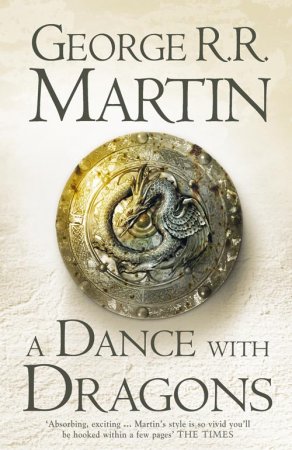 A Dance with Dragons
A Dance with Dragons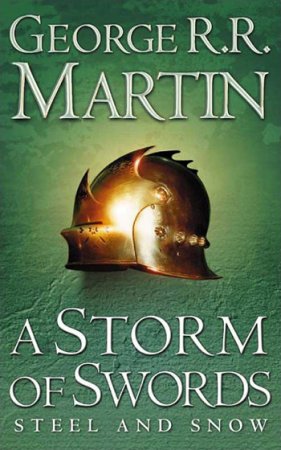 A Storm of Swords
A Storm of Swords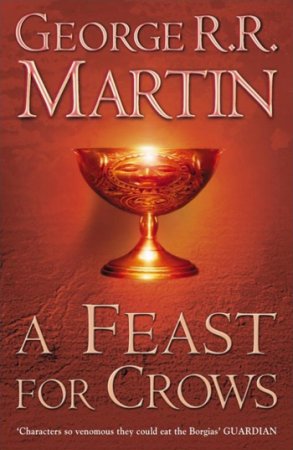 A Feast for Crows
A Feast for Crows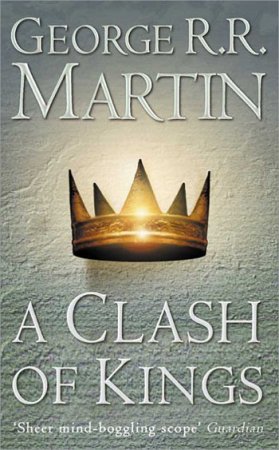 A Clash of Kings
A Clash of Kings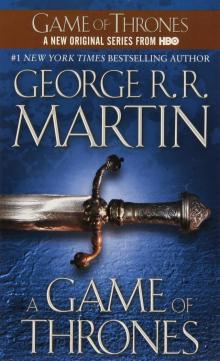 A Game of Thrones
A Game of Thrones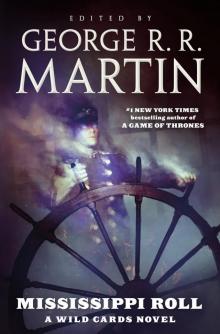 Mississippi Roll
Mississippi Roll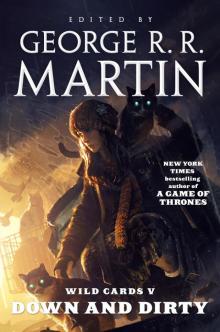 Wild Cards V: Down and Dirty
Wild Cards V: Down and Dirty Busted Flush
Busted Flush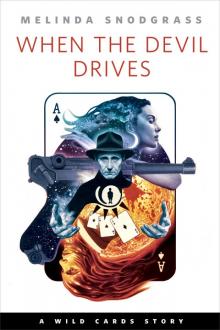 When the Devil Drives
When the Devil Drives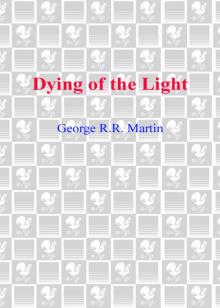 Dying of the Light
Dying of the Light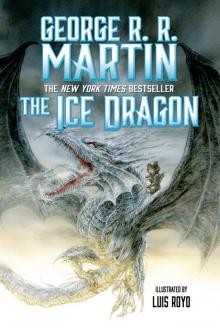 The Ice Dragon
The Ice Dragon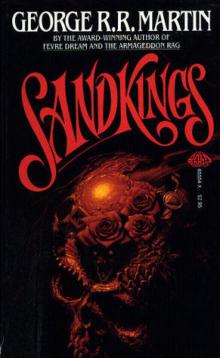 Sandkings
Sandkings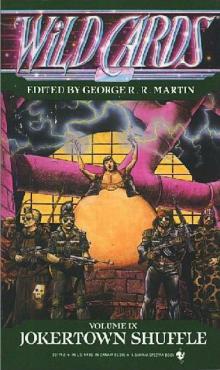 Jokertown Shuffle
Jokertown Shuffle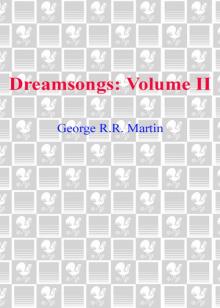 Dreamsongs. Volume II
Dreamsongs. Volume II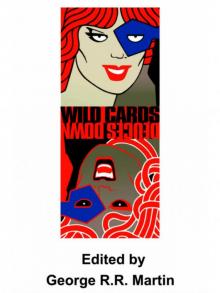 Deuces Down
Deuces Down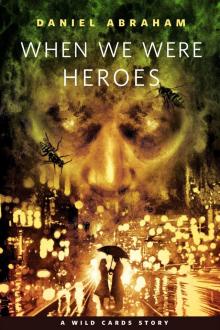 When We Were Heroes
When We Were Heroes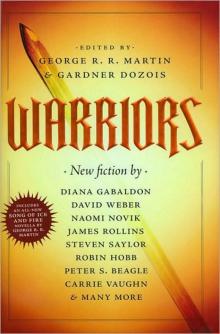 Warriors
Warriors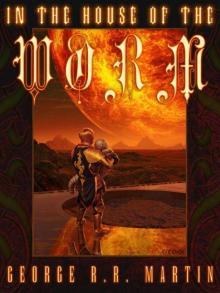 In the House of the Worm
In the House of the Worm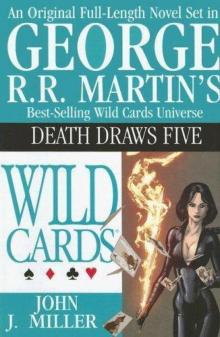 Death Draws Five
Death Draws Five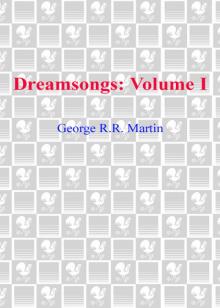 Dreamsongs. Volume I
Dreamsongs. Volume I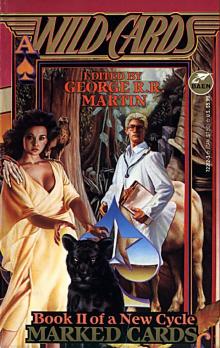 Marked Cards
Marked Cards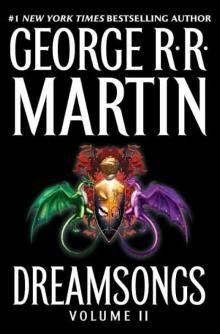 Dreamsongs
Dreamsongs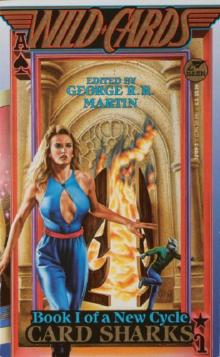 Card Sharks
Card Sharks Dangerous Women
Dangerous Women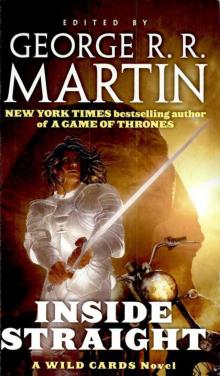 Inside Straight
Inside Straight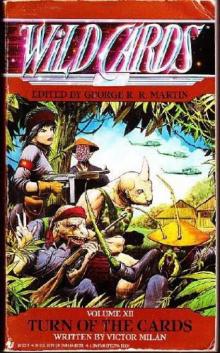 Turn of the Cards
Turn of the Cards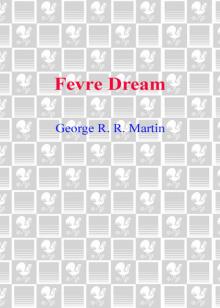 Fevre Dream
Fevre Dream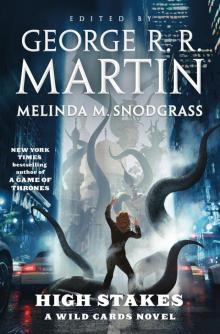 High Stakes: A Wild Cards Novel
High Stakes: A Wild Cards Novel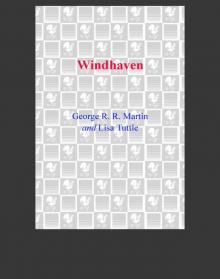 Windhaven
Windhaven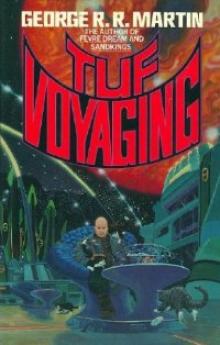 Tuf Voyaging
Tuf Voyaging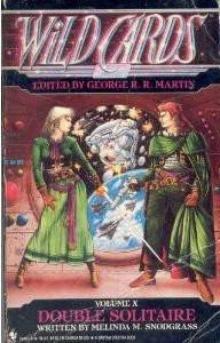 Double Solitaire
Double Solitaire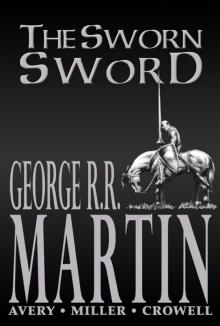 The Sworn Sword
The Sworn Sword Low Chicago
Low Chicago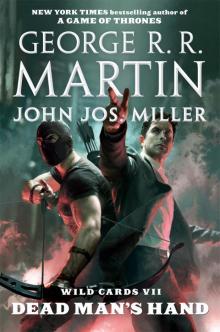 Dead Man's Hand
Dead Man's Hand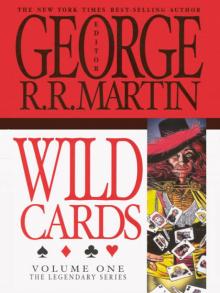 Wild Cards
Wild Cards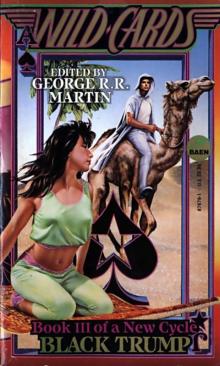 Black Trump
Black Trump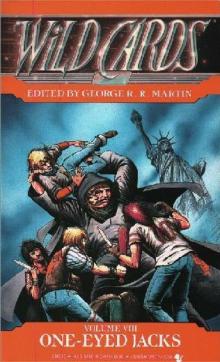 One Eyed Jacks
One Eyed Jacks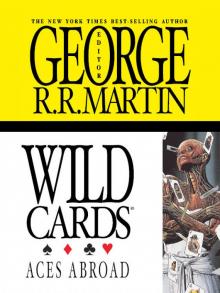 Wild Cards: Aces Abroad
Wild Cards: Aces Abroad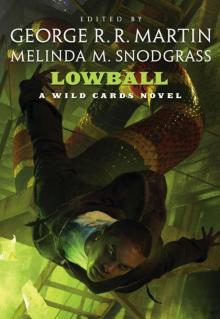 Lowball: A Wild Cards Novel
Lowball: A Wild Cards Novel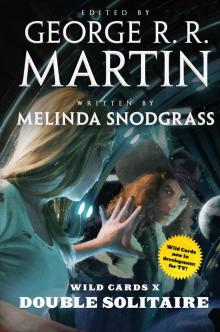 Double Solitaire (2019 Edition)
Double Solitaire (2019 Edition)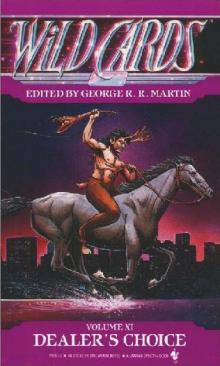 Dealer's Choice
Dealer's Choice Ace in the Hole
Ace in the Hole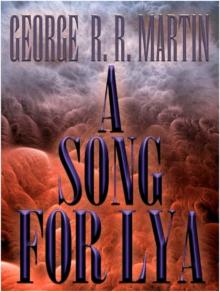 A Song for Lya: And Other Stories
A Song for Lya: And Other Stories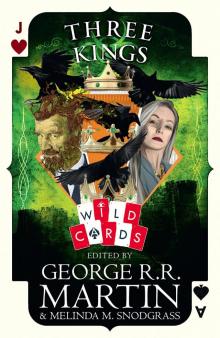 Three Kings
Three Kings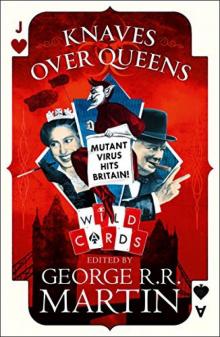 Knaves Over Queens
Knaves Over Queens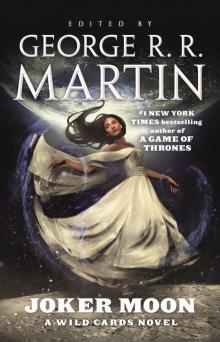 Joker Moon
Joker Moon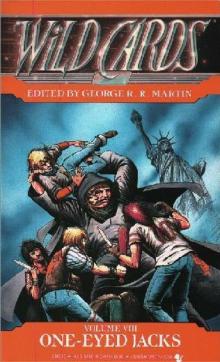 One Eyed Jacks wc-8
One Eyed Jacks wc-8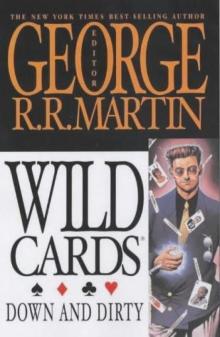 Down And Dirty wc-5
Down And Dirty wc-5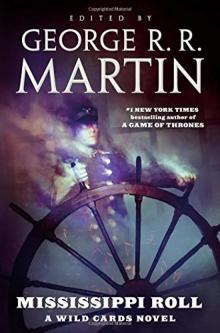 Mississippi Roll_A Wild Cards Novel
Mississippi Roll_A Wild Cards Novel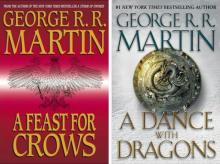 A Feast for Dragons
A Feast for Dragons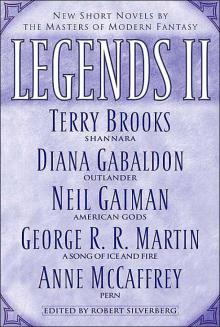 The Sworn Sword ttodae-2
The Sworn Sword ttodae-2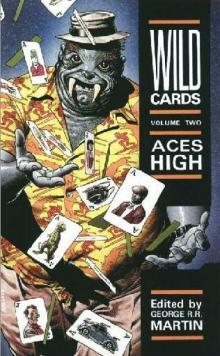 Aces High wc-2
Aces High wc-2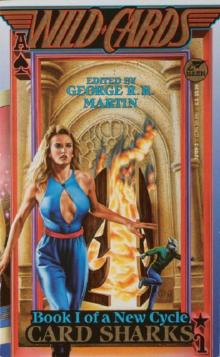 Wild Cards 13 : Card Sharks
Wild Cards 13 : Card Sharks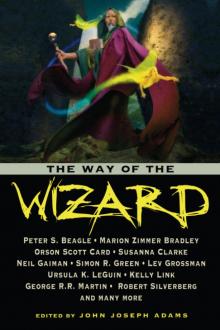 Way of the Wizard
Way of the Wizard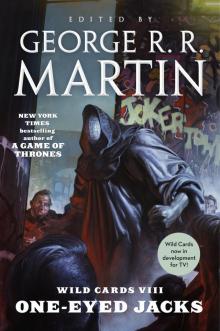 Wild Cards VIII: One-Eyed Jacks
Wild Cards VIII: One-Eyed Jacks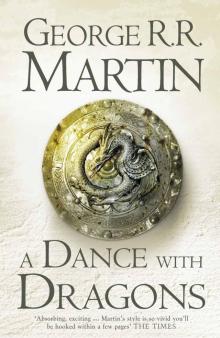 A Dance With Dragons: Book 5 of A Song of Ice and Fire (Song of Ice & Fire 5)
A Dance With Dragons: Book 5 of A Song of Ice and Fire (Song of Ice & Fire 5) The Princess and The Queen, Or, The Blacks and The Greens (a song of ice and fire)
The Princess and The Queen, Or, The Blacks and The Greens (a song of ice and fire)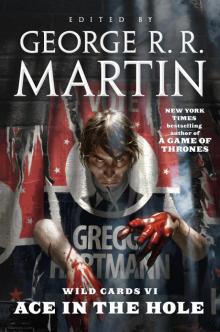 Wild Cards VI--Ace in the Hole
Wild Cards VI--Ace in the Hole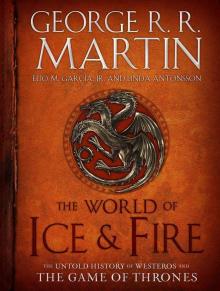 The World of Ice & Fire: The Untold History of Westeros and the Game of Thrones (A Song of Ice and Fire)
The World of Ice & Fire: The Untold History of Westeros and the Game of Thrones (A Song of Ice and Fire)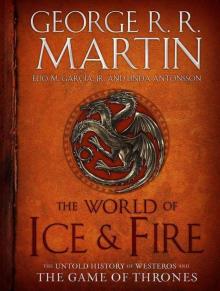 The World of Ice & Fire: The Untold History of Westeros and the Game of Thrones
The World of Ice & Fire: The Untold History of Westeros and the Game of Thrones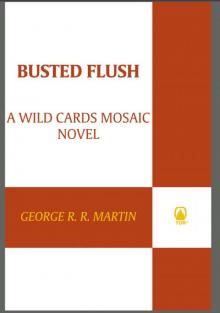 Busted Flush wc-19
Busted Flush wc-19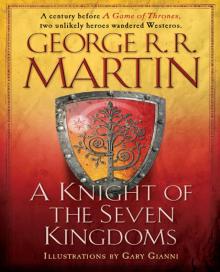 A Knight of the Seven Kingdoms
A Knight of the Seven Kingdoms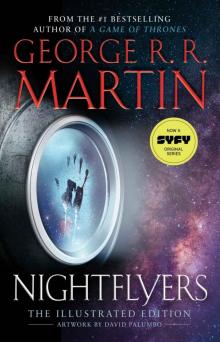 Nightflyers: The Illustrated Edition
Nightflyers: The Illustrated Edition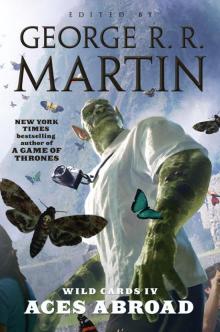 Wild Cards IV
Wild Cards IV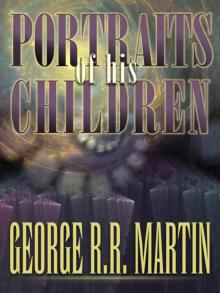 Portraits of His Children
Portraits of His Children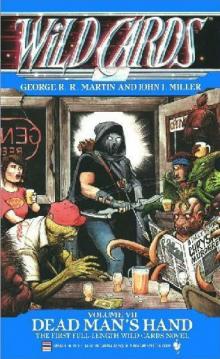 Dead Mans Hand wc-7
Dead Mans Hand wc-7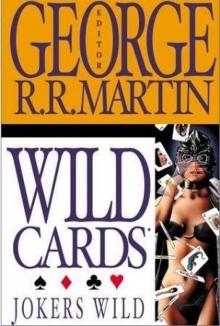 Jokers Wild wc-3
Jokers Wild wc-3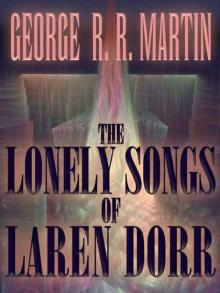 The Lonely Songs of Laren Dorr
The Lonely Songs of Laren Dorr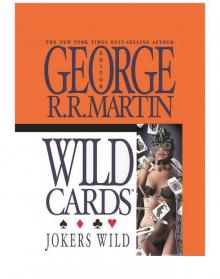 Wild Cards III: Jokers Wild
Wild Cards III: Jokers Wild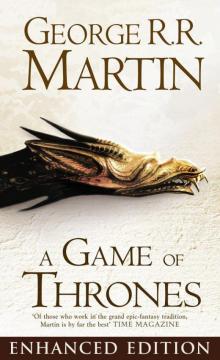 A Game of Thrones Enhanced Edition
A Game of Thrones Enhanced Edition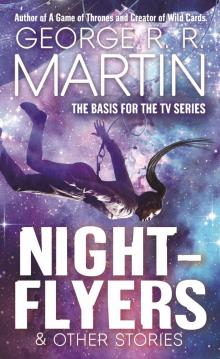 Nightflyers & Other Stories
Nightflyers & Other Stories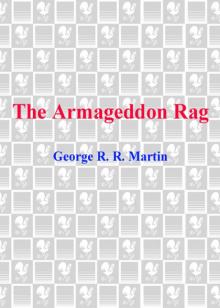 Armageddon Rag
Armageddon Rag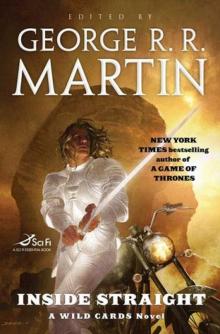 Wild Cards: Inside Straight
Wild Cards: Inside Straight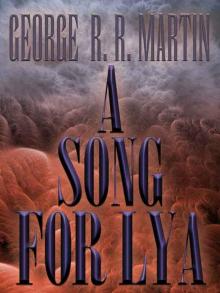 A Song for Lya
A Song for Lya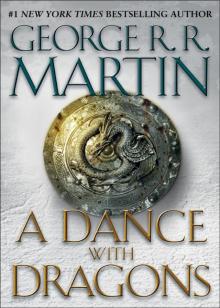 A Dance with Dragons: A Song of Ice and Fire: Book Five
A Dance with Dragons: A Song of Ice and Fire: Book Five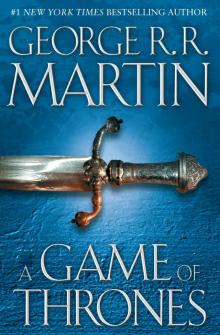 Song of Fire & Ice 01 - A Game of Thrones
Song of Fire & Ice 01 - A Game of Thrones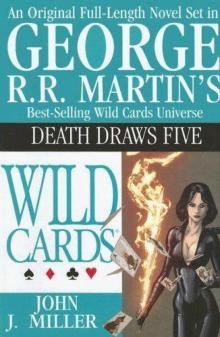 Death Draws Five wc-17
Death Draws Five wc-17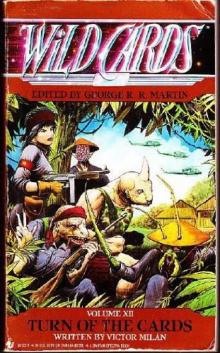 Turn of the Cards w-12
Turn of the Cards w-12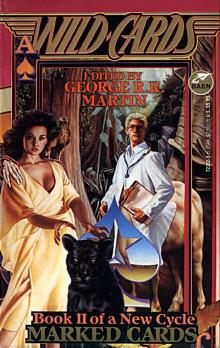 Wild Cards 14 - Marked Cards
Wild Cards 14 - Marked Cards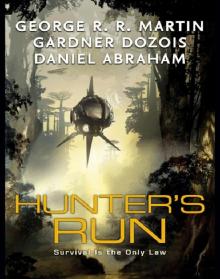 Hunter's Run
Hunter's Run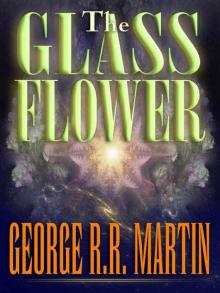 The Glass Flower
The Glass Flower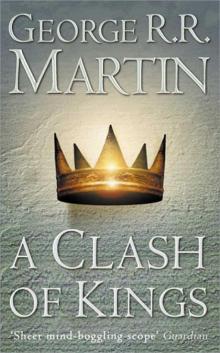 A Clash of Kings asoiaf-2
A Clash of Kings asoiaf-2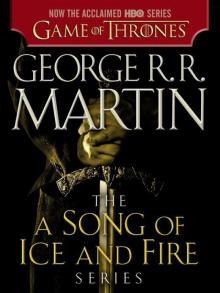 A Game of Thrones 5-Book Bundle: A Song of Ice and Fire Series: A Game of Thrones, A Clash of Kings, A Storm of Swords, A Feast for Crows, and A Dance with Dragons (Song of Ice & Fire)
A Game of Thrones 5-Book Bundle: A Song of Ice and Fire Series: A Game of Thrones, A Clash of Kings, A Storm of Swords, A Feast for Crows, and A Dance with Dragons (Song of Ice & Fire)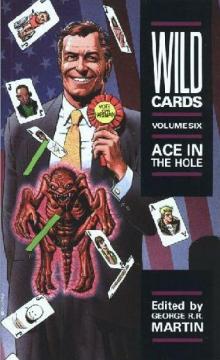 Ace In The Hole wc-6
Ace In The Hole wc-6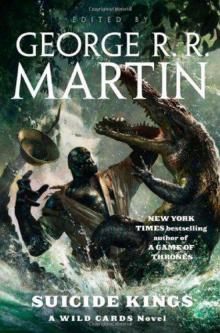 Suicide Kings wc-20
Suicide Kings wc-20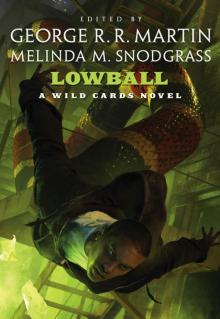 Lowball
Lowball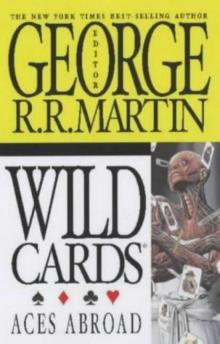 Aces Abroad wc-4
Aces Abroad wc-4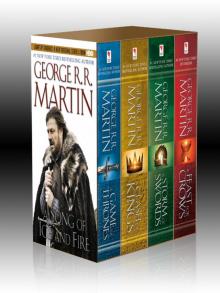 George R. R. Martin's a Game of Thrones 4-Book Bundle
George R. R. Martin's a Game of Thrones 4-Book Bundle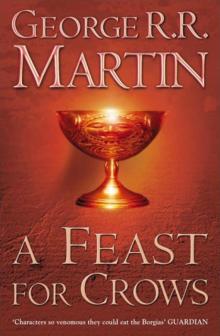 A Feast for Crows asoiaf-4
A Feast for Crows asoiaf-4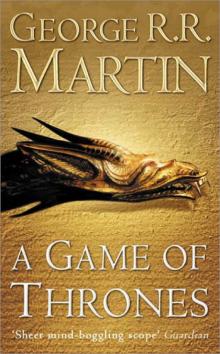 A Game of Thrones asoiaf-1
A Game of Thrones asoiaf-1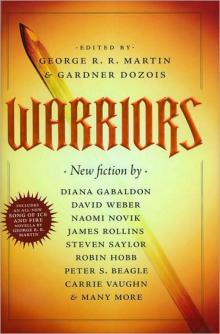 The Mystery Knight ttodae-3
The Mystery Knight ttodae-3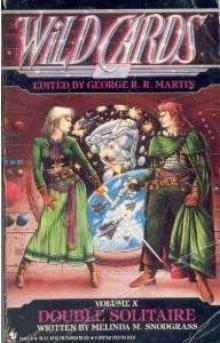 Double Solitaire w-10
Double Solitaire w-10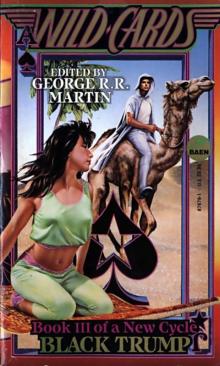 Wild Cards 15 - Black Trump
Wild Cards 15 - Black Trump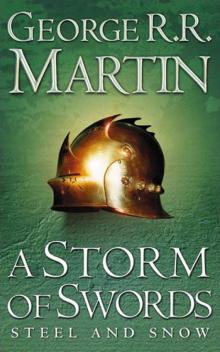 A Storm of Swords asoiaf-3
A Storm of Swords asoiaf-3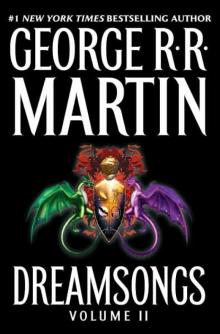 The Hedge Knight ttodae-1
The Hedge Knight ttodae-1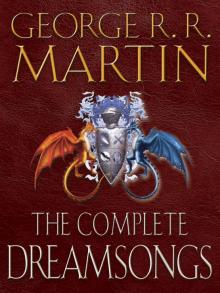 Dreamsongs 2-Book Bundle
Dreamsongs 2-Book Bundle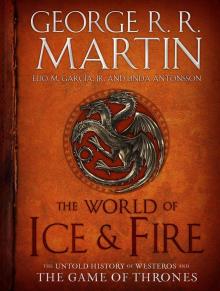 The World of Ice & Fire
The World of Ice & Fire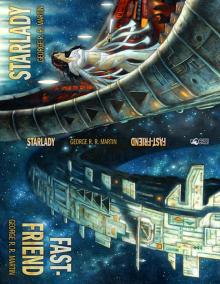 Starlady & Fast-Friend
Starlady & Fast-Friend Old Mars
Old Mars Fantasy For Good: A Charitable Anthology
Fantasy For Good: A Charitable Anthology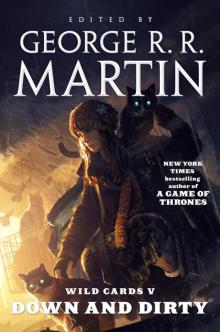 Wild Cards V
Wild Cards V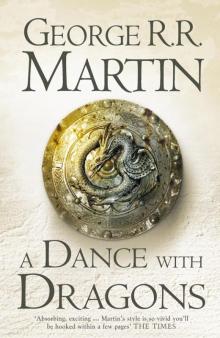 A Dance with Dragons asoiaf-5
A Dance with Dragons asoiaf-5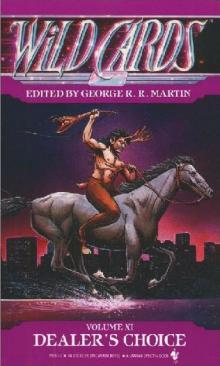 Dealer's Choice w-11
Dealer's Choice w-11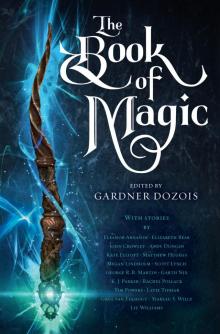 The Book of Magic
The Book of Magic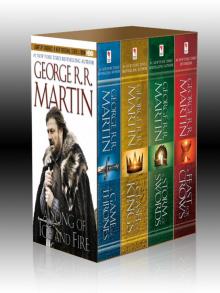 A Game of Thrones 4-Book Bundle
A Game of Thrones 4-Book Bundle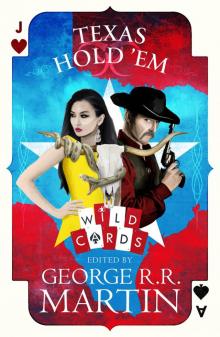 Texas Hold 'Em
Texas Hold 'Em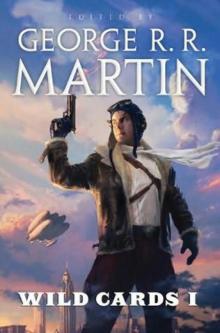 Wildcards wc-1
Wildcards wc-1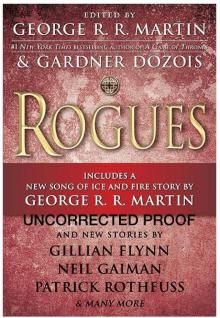 Rogues
Rogues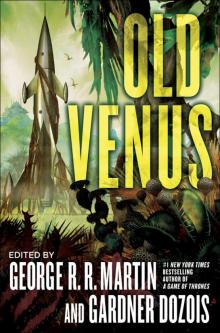 Old Venus
Old Venus